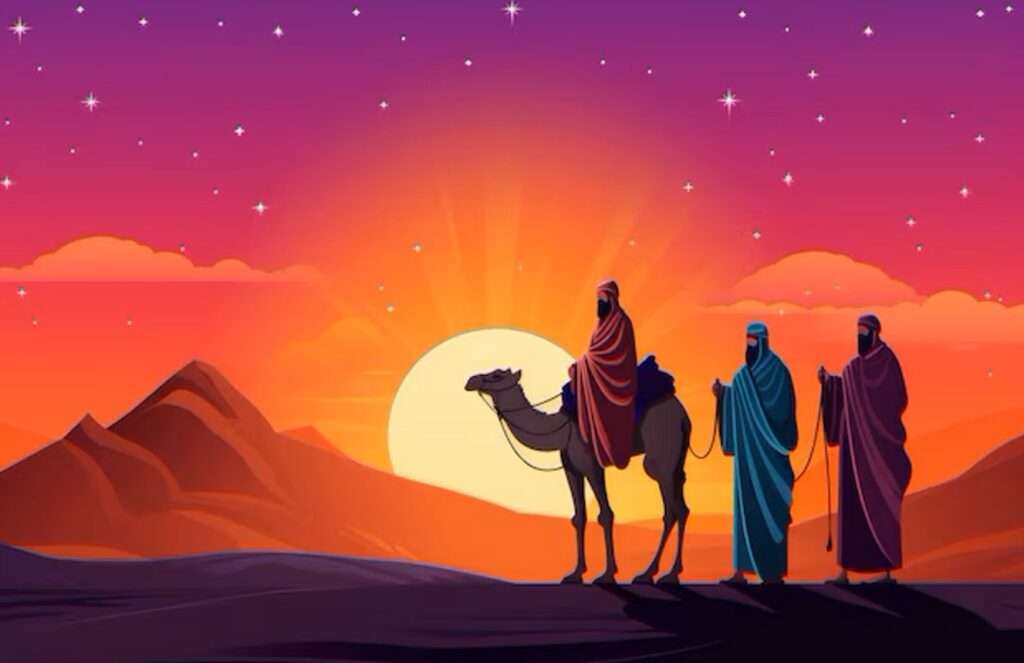
Introduction:
Let’s explore the amazing story of Prophet Musa (Moses), a revered figure in Islam. His story, filled with miracles, challenges, and faith, is found in the Quran and offers valuable lessons for all of us.
The Birth of Musa:
Musa was born in a time when the Pharaoh of Egypt was cruel to the Israelites. Fearing that a boy from the Israelites would one day overthrow him, the Pharaoh ordered all newborn boys to be killed. To save her son, Musa’s mother placed him in a basket and set it afloat on the Nile River, trusting Allah to protect him. The basket was found by the Pharaoh’s wife, who decided to adopt Musa.
Musa’s Early Life:
Musa grew up in the Pharaoh’s palace, living a life of privilege. However, as he grew older, he began to realize the suffering of his people, the Israelites. One day, in defending an Israelite, Musa accidentally killed an Egyptian. Fearing for his life, Musa fled to the land of Midian.
Musa in Midian:
In Midian, Musa helped some women water their flock and was invited to stay with their father, a wise old man named Shuayb. Musa married one of his daughters and lived there for several years, working as a shepherd.
The Burning Bush:
One day, while traveling with his family, Musa saw a fire in the distance on Mount Sinai. When he approached it, he saw a burning bush that was not consumed by the flames. Allah spoke to Musa from the bush, commanding him to go back to Egypt and free the Israelites from the Pharaoh’s tyranny. Allah also gave Musa two miracles: his staff turning into a snake and his hand glowing with a bright light when placed inside his cloak.
Return to Egypt:
Musa returned to Egypt and, with his brother Harun (Aaron) as his spokesperson, went to the Pharaoh. He asked the Pharaoh to release the Israelites, but the Pharaoh refused and mocked Musa’s signs. Despite facing many challenges, Musa continued to call the Pharaoh to believe in Allah and let the Israelites go.
The Plagues:
To show His power, Allah sent a series of plagues upon Egypt. These included water turning to blood, frogs, lice, locusts, darkness, and more. Each time, the Pharaoh promised to release the Israelites but changed his mind once the plague was lifted.
The Exodus:
Finally, after the last and most severe plague, the death of the firstborns, the Pharaoh allowed the Israelites to leave. Musa led his people out of Egypt, but the Pharaoh changed his mind and chased them with his army. When they reached the Red Sea, Allah commanded Musa to strike the sea with his staff. The waters parted, allowing the Israelites to cross safely. When the Pharaoh and his army followed, the waters closed over them, and they drowned.
Musa and the Israelites:
After escaping Egypt, the Israelites wandered in the desert for many years. During this time, Allah provided for them and gave Musa the Ten Commandments on Mount Sinai, which were guidelines for living a righteous life. Despite many challenges and tests of faith, Musa continued to lead his people with patience and devotion.
Conclusion:
The story of Prophet Musa is a tale of faith, perseverance, and trust in Allah. It teaches us about the power of Allah, the importance of standing up against oppression, and the value of patience and faith in overcoming challenges. Musa’s journey is an inspiring example for all of us, reminding us to trust in Allah’s plan and guidance.
Learn Quran:
For further exploration of Islamic teachings and spiritual growth, consider Online Islamic Institute. With affordable courses and up to 14 days free trial, deepen your faith journey.
Home
that you this helped out alot
You’re welcome, do consider our courses.
Thanks – Team OII
Thanks this helps a lot
Jazakallah khairan wa ahsanal jaza, thank you! May Allah’s blessings be upon you always – Team OII ❤️